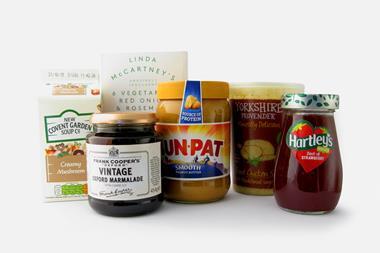Heinz began distributing new global marketing guidelines this week to ensure all its advertising promotes the “healthful consumption” of its products.
The guidelines, going to all Heinz units and affiliates, include a recognition of the fact young children often have difficulty in understanding the difference between reality and imagination. Care must therefore
be taken to “communicate truthfully and in an accurate manner and in language understood by young children”.
Communications media should not be directed solely to pre-school children, say the guidelines, while Heinz brand names and trademarks should not be licensed on products marketed solely to pre-school children, aside from infant feeding and toddler foods.
European general manager of corporate affairs Michael Mullen said: “They highlight the fact that Heinz has a responsibility to help consumers make informed and healthy choices.”
The release of the guidelines, which cover everything from TV ads, instore communication and PR campaigns to in-school programmes, came as Labour MP Debra Shipley introduced a bill to control TV advertising aimed at children and the Consumers’ Association unveiled a report saying children who regularly eat food marketed at them are seriously damaging their future health.
This was the second time in six months that Shipley, Labour MP for Stourbridge, has unveiled a bill banning advertising of high fat, high sugar and high salt content foods on children’s TV.
“Children are subjected to repeated imagery and carefully constructed, memorable jingles. The message is that the products are fun and make children happy,” she stated, claiming backing from nearly 90 organisations - including the National Heart Forum, the Food Commission, Diabetes UK and the National Union of Teachers, plus the public.
She added: “The powerful food and drink industry is allowed to ruthlessly and cynically target small children with products way above what is good for their health.”
The bill is part of a continuing campaign to influence the government. Minutes before Shipley unveiled her proposals, social affairs minister Dr Stephen Ladyman voiced sympathy with the bill’s broad aims. And in a written Commons reply, junior health minister Melanie Johnson said food was more commonly advertised to children than adults and the foods promoted tended to be high in fat, salt or added sugar.
Siân Harrington
The guidelines, going to all Heinz units and affiliates, include a recognition of the fact young children often have difficulty in understanding the difference between reality and imagination. Care must therefore
be taken to “communicate truthfully and in an accurate manner and in language understood by young children”.
Communications media should not be directed solely to pre-school children, say the guidelines, while Heinz brand names and trademarks should not be licensed on products marketed solely to pre-school children, aside from infant feeding and toddler foods.
European general manager of corporate affairs Michael Mullen said: “They highlight the fact that Heinz has a responsibility to help consumers make informed and healthy choices.”
The release of the guidelines, which cover everything from TV ads, instore communication and PR campaigns to in-school programmes, came as Labour MP Debra Shipley introduced a bill to control TV advertising aimed at children and the Consumers’ Association unveiled a report saying children who regularly eat food marketed at them are seriously damaging their future health.
This was the second time in six months that Shipley, Labour MP for Stourbridge, has unveiled a bill banning advertising of high fat, high sugar and high salt content foods on children’s TV.
“Children are subjected to repeated imagery and carefully constructed, memorable jingles. The message is that the products are fun and make children happy,” she stated, claiming backing from nearly 90 organisations - including the National Heart Forum, the Food Commission, Diabetes UK and the National Union of Teachers, plus the public.
She added: “The powerful food and drink industry is allowed to ruthlessly and cynically target small children with products way above what is good for their health.”
The bill is part of a continuing campaign to influence the government. Minutes before Shipley unveiled her proposals, social affairs minister Dr Stephen Ladyman voiced sympathy with the bill’s broad aims. And in a written Commons reply, junior health minister Melanie Johnson said food was more commonly advertised to children than adults and the foods promoted tended to be high in fat, salt or added sugar.
Siân Harrington



















No comments yet